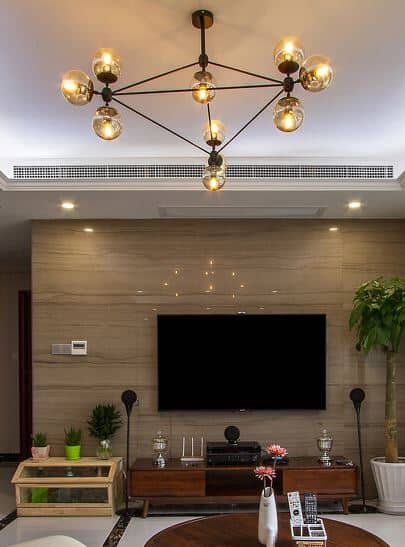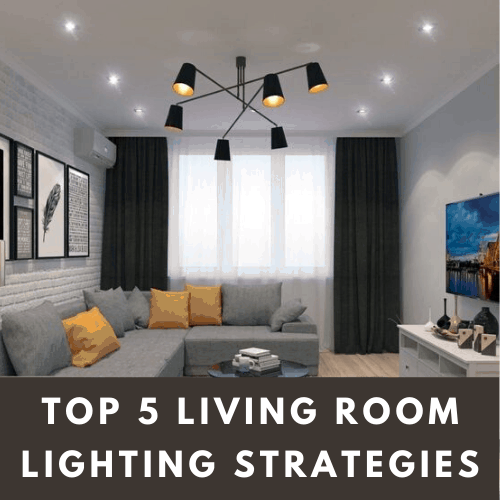
Lighting the living room and doing it well is very important. After all, this is the part of the house that your guests will see first. This is also where your family can gather to watch television, play games, bond and a lot more. Basically, it’s a place where you can do things together. Even if you’re alone at home, your living room is still inevitably vital. After a long day at work, this is where you can go to seek peace and unplug from the real world. Work life balance should be given utmost importance.
Realizing the room’s significance, you may now wonder what you can do to improve your living room. There are a lot, to be honest. But why not start with something basic- lighting. To improve your living room through lighting, join me as we discuss the top 5 living room lighting strategies you may apply to your home.
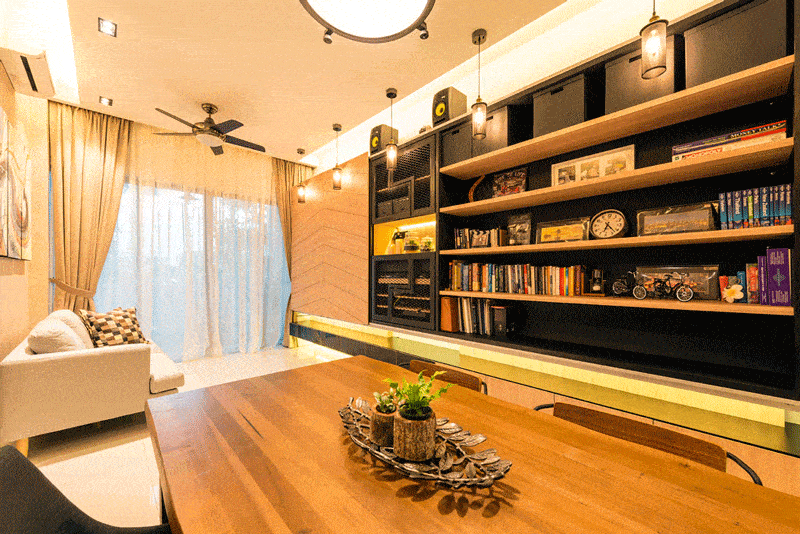
Image Credit: Renonation, The Local Inn Terior
Layering Based on Function
Lighting your living room is a basic necessity, but it isn’t as simple as you think. However, it doesn’t have to be too complicated as well. With layering, you’ll be able to light your living room to suit the requirement of different activities in a given space. When layering, you combine the three most common types of lighting – ambient, task, and accent while considering the function you intended your living room to be.
First, ask yourself the question, “What will I do in my living room?”. Since it is your home, it really depends on your preference. Will you use the room for watching television, for reading, for entertainment, or for all these?
For Watching Television:
If you project that your living room’s main function is to watch television, below are the lighting fixtures that you can use:
Ambient Lighting – Use dimmable overhead light for illumination. This will give you the choice to dim the light while watching TV, while also allowing you to open the light at its full brightness whenever necessary. Chandeliers, ceiling lamps, pendant lamps, recessed pin lights are all recommended.
Shop this look: ELOV Galaxy Stars Lamp
Task Lighting – Task lighting for this function is minimal. If you wish, you may add wall lamps behind the sofa or table lamps on the center table if you need to browse the remote.

Shop here: DANNE Smiles Brighten My Day Lamp
Accent Lighting – If you prefer a cinema type setting, you may turn off overhead lighting completely. But if you still want to have minimal light, you may put under cabinet lights for visual effect. Just use a low wattage light so it wont be too distracting and shadow-casting.
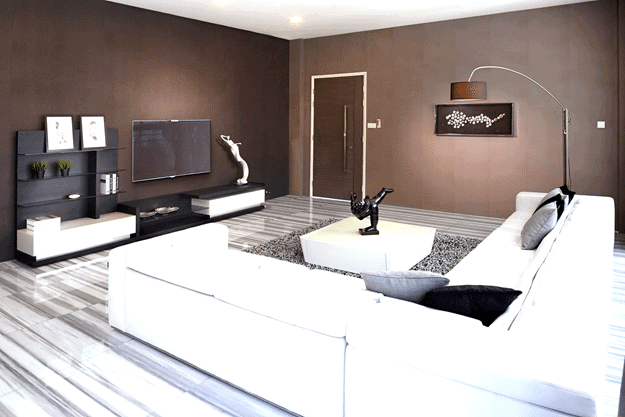
Image Credit: Renopedia, Unimax Creative
For Social Gathering and Entertainment:
If you’re a social butterfly and you usually host parties, then your living room could be one of the places you will hold your guests. Below are the lighting recommendations:
Ambient Lighting – For social gathering, you have a variety of options to choose from – chandeliers, wall lamps, pendant lights, floor lamps, etc. This is the time to flaunt your statement piece, I recommend a chandelier or a hanging lamp. You can choose multiple of the lighting fixtures mentioned and mix and match these.
Just go for a warm color temperature for the guests to be relaxed and comfortable.
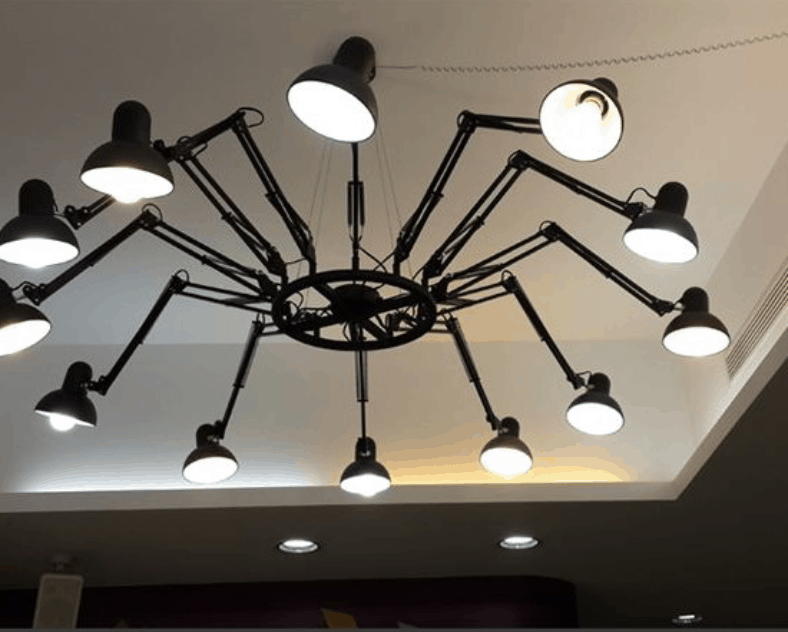
Get this look: Evelina Tarantula Spider Legs Extendable Lighting
Task Lighting – You may throw in some pendant lights or wall lamps on the living room. This will be good aesthetically wise while also providing an option for task lighting.
Accent Lighting – This is the perfect opportunity to show what you cherish the most. If it’s a piece of art, some figurines, or whatever it may be, you may highlight it through accent lighting. Use task lighting, overhead spotlights, or picture lights to show them your collections or prized possession.
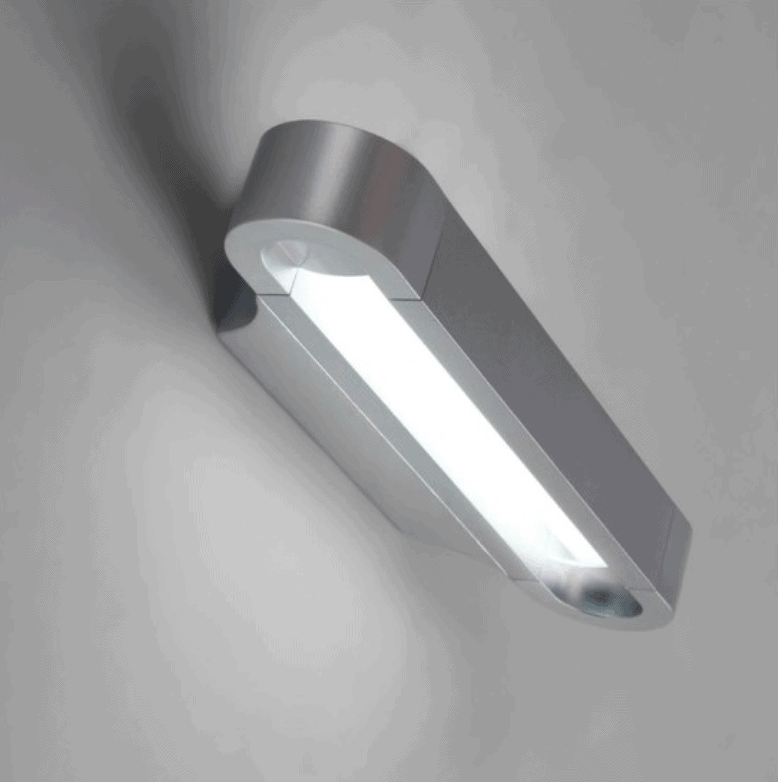
Get this here: MAGDA Space Shuttle Lamp
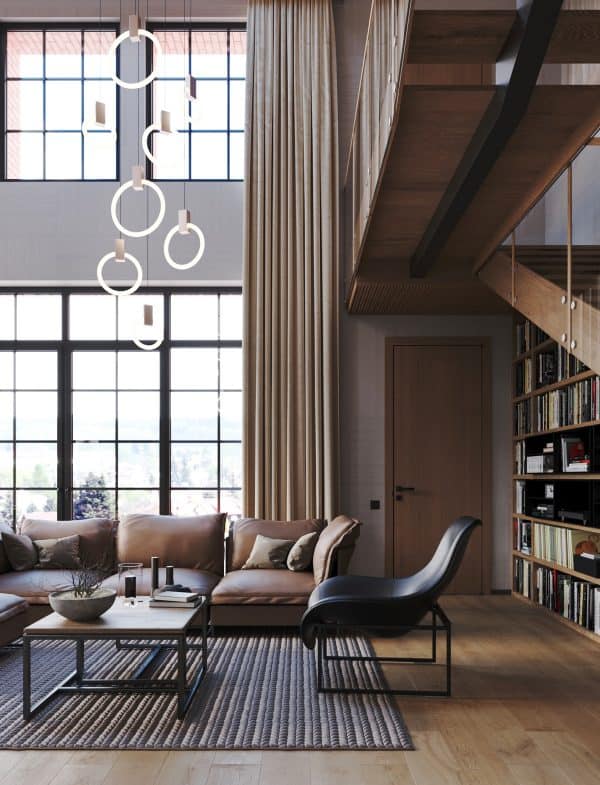
Image Credit: Interior Design Ideas
For Reading
Ambient Lighting –For reading purposes, as long as your light is providing general illumination, it won’t matter much. Any lighting fixture is okay.
Task Lighting – Task lighting is very important for readers. Reading lamps, floor lamps, or extendable wall lamps are all good options. The more flexible the position is, the better so you have the leeway to find the right spot and most comfortable environment.
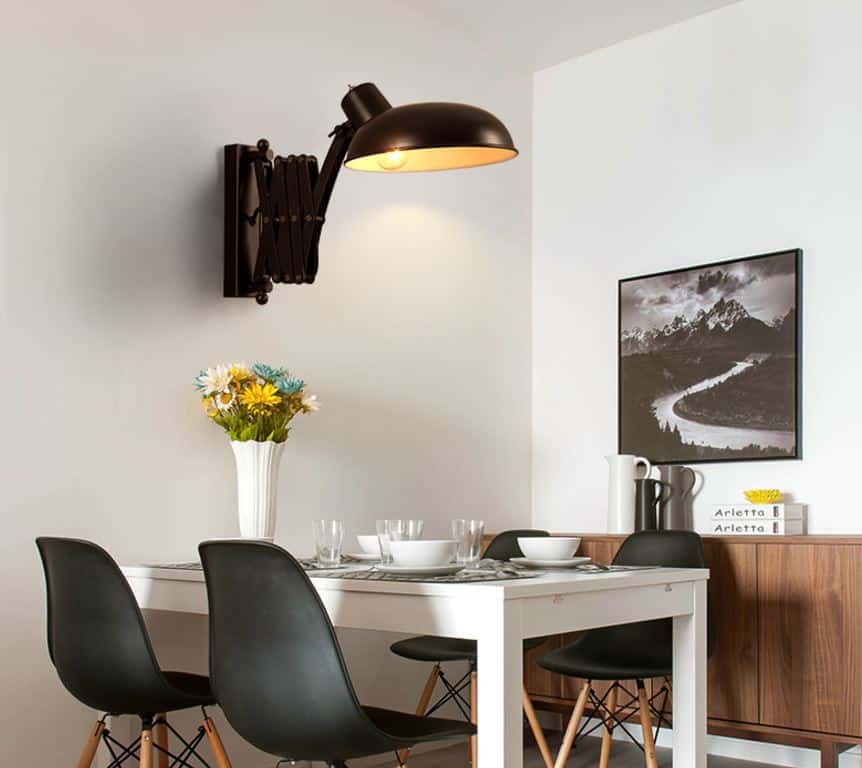
Shop this look: BJOERN A Step Forward Extending Lamp
Accent Lighting – In this case, accent lighting can be unnecessary. If your books are your prized possession and you showcase it in your living room, then highlight it through track lighting or spotlights. As they say, your home can reflect your personality.
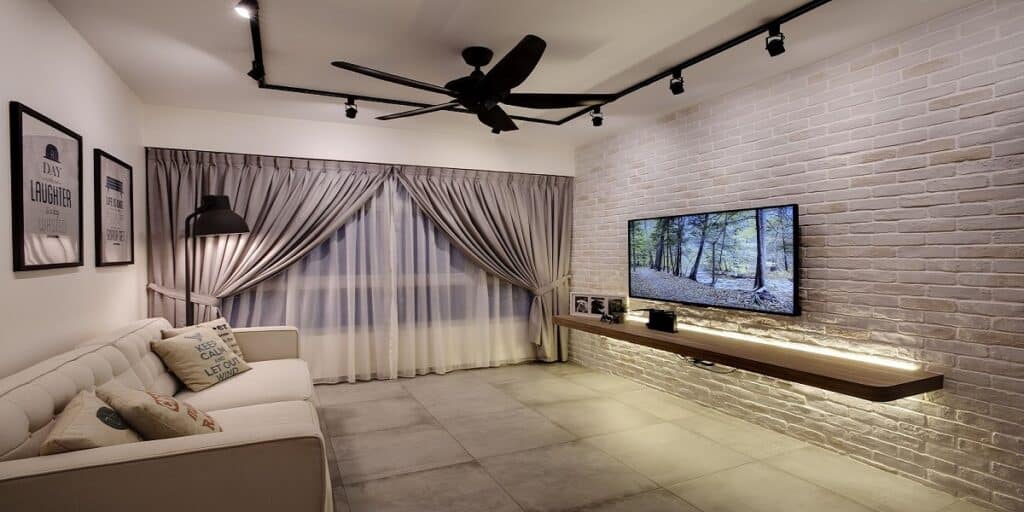
Image Credit: Renopedia, I.Haven Design Consultants
Go With What’s Proven
If designing or DIYs just isn’t your thing, we got you covered. Below are some proven and ready made lighting fixture combinations for your living room. You just have to buy and have it installed!
Option 1 –Minimalism
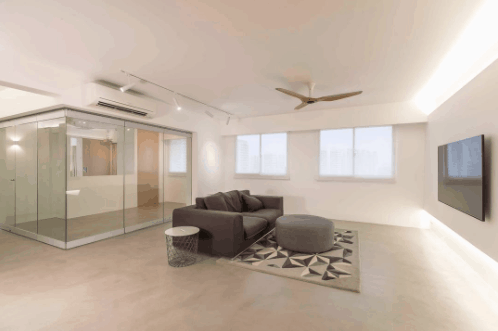
Image Credit: Swiss Interior Design
Since minimalism is a hit nowadays, many have embraced it and made it their own. Who would have thought that a big area with so little amount of fixtures would look this nice?
Ambient Lighting – Ceiling Cove Lighting, Majority of Track Light Heads
Accent Lighting – Under Cabinet Lighting, Minority of Track Light Heads (directed on the wall to eliminate dark spots)
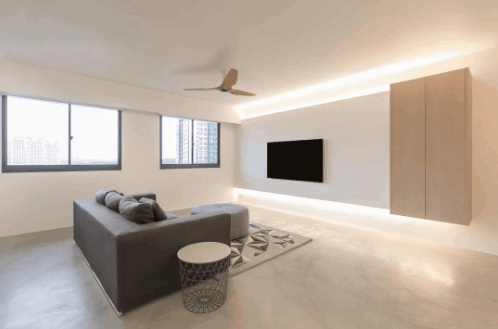
Image Credit: Swiss Interior Design
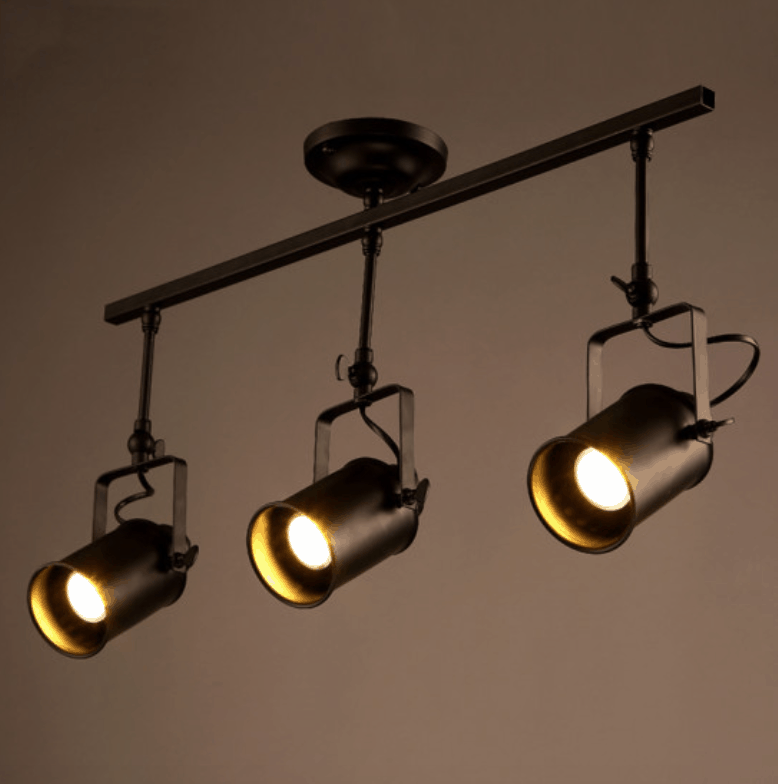
Get this look: JERKER Stylish Spotlight with Track and Pole
Option 2 – Ceiling Fan with Built in Light
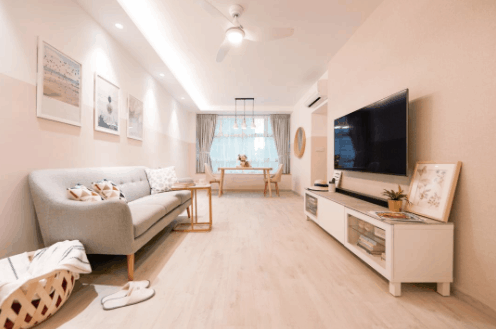
Image Credit: Qanvast, MET interior
Ideal for small apartment living rooms, sometimes only three types of lighting fixtures are enough to provide decent illumination. All of which doesn’t take up space.
Singaporean interior designers have really found a way to bring back ceiling fans into the trend. Why not? The new designs are fashionable, and its function is solid given the weather.
Ambient Lighting – Ceiling Fan with Built-in Light
Task Lighting – Recessed pinlight
Accent Lighting – Cove Lighting
Option 3 – Modern
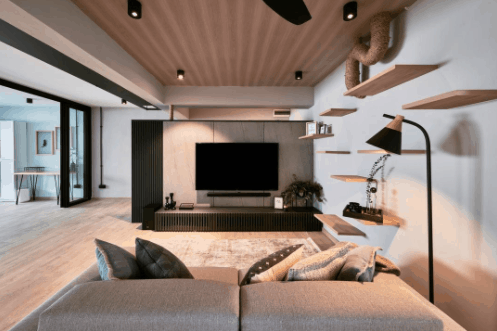
Image Credit: Qanvast, Mr. Shopper Studio
Looking very manly and sleek, this living room exemplifies that there can be times when there’s no need for a statement piece for lighting.
Ambient Lighting – 4 pc. Ceiling Lamp
Task Lighting – Floor Lamp
Option 4 – Statement Piece
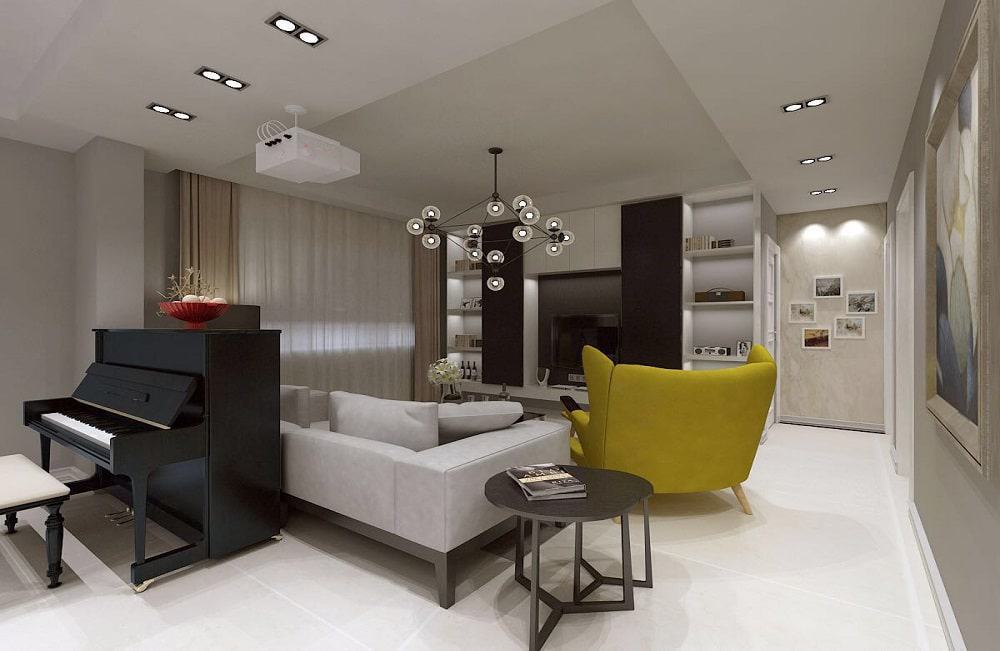
Image Credit: Renopedia, A+Z Creative
Having a statement piece of lighting will always be aesthetically sound when the right choice is made.
Ambient Lighting – Hanging Lamp
Accent Lighting – Recessed Pin lights
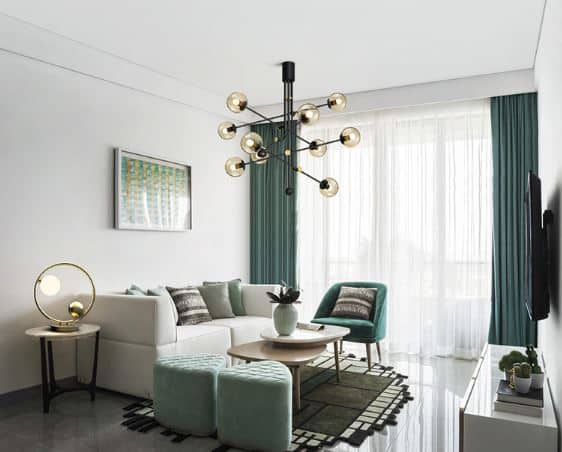
Shop This Look: Railighon Sticks and Balls Hanging Lamp
Option 5 – The Power of Cove Lighting
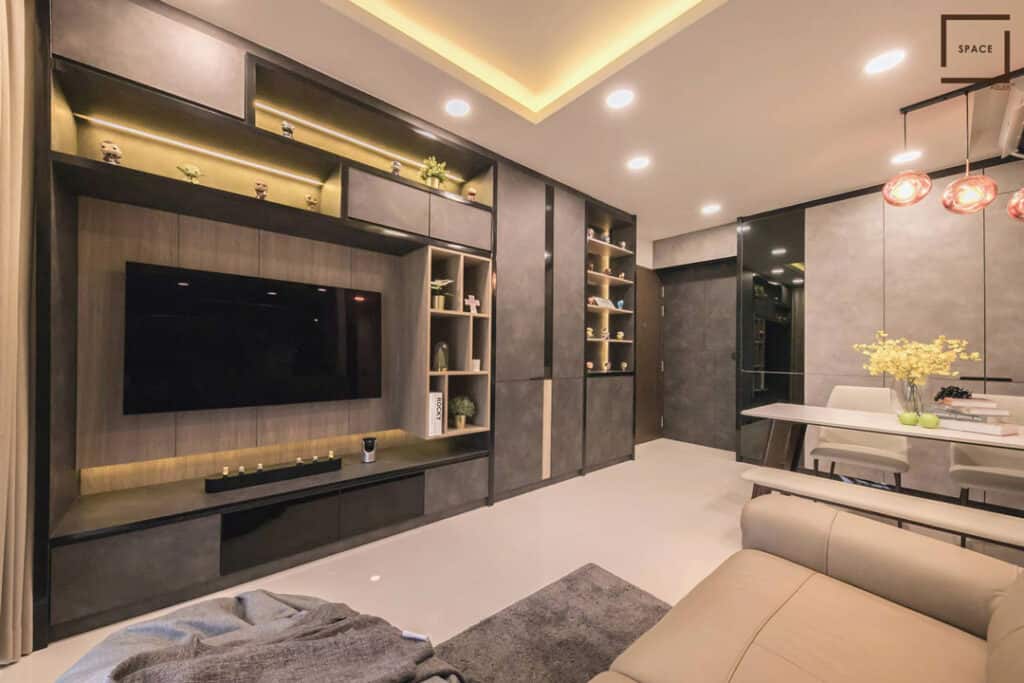
Image Credit: Renonation, Space Atelier
Cove lighting has been widely used all over the world. It’s a strategy used to show elegance while still getting the job done.
Ambient Lighting – Cove Lighting, Recessed Pin lights
Accent Lighting –Shelf Lights
Choosing the Right Bulb
The brighter the bulb, the higher the lumens; wattage is not a measure of brightness but of consumption; the higher the Kelvin, the cooler the light – these are basics of bulb that you should know when you purchase.
Lumens
For the living room, the recommended total lumens ranges from 1,500 to 3,000 lumens. However, this will vary depending on the actual area of your living room. This could also be affected by other external factors like the color of your wall. Knowing the required total lumens, you should be able to properly choose your bulbs.
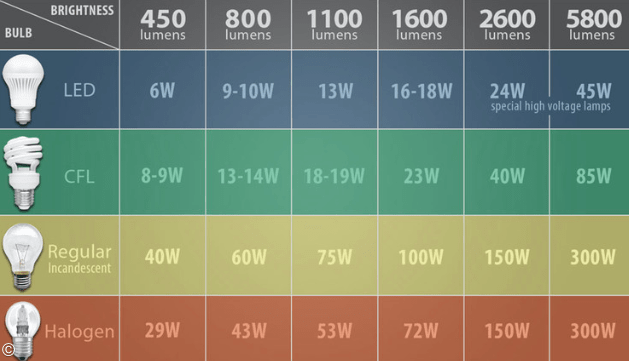
Image from Archdaily
Color Temperature
The recommended color temperature for the living room is 2200-3000K. This falls under the warm white category, which is recommended for spaces expected to provide a warm and cozy feel. For comparison’s sake, the required color temperature for offices is 3000-5000K, falling under cool white. A high color temperature boosts your mood, while a lower color temperature will make you feel relaxed. Go with the latter.
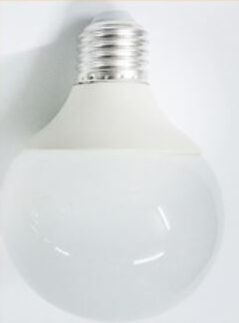
Shop here: LED G80/G95 White- Tinted Round Bulb
Installing Dimmers and Three Way-Lighting
It’s been established how lighting can affect your mood. Even though there’s this general idea of required color temperature and lumens for the living room, sometimes there’s a need to vary from the norm. There could be scenarios requiring such instances, making it just right to have flexible lighting systems.
Dimmers
Dimmers will provide you the flexibility to adjust your lighting. It’s always nice to have the option to achieve any type of mood you want. If you feel the need for a bright and cheerful illumination, turn up the lights to its maximum. If you want a romantic vibe, turn down the lights. This provides you more options than simply “on and off”.
Three Way Lighting
Three way bulbs are also a good option if you want to interchange lighting colors. As mentioned, warm white is highly recommended for your living room. But what if suddenly you want to work in your living room? With just two to three presses on the switch, you can change the color temperature from warm white to daylight or something in the middle of the two.
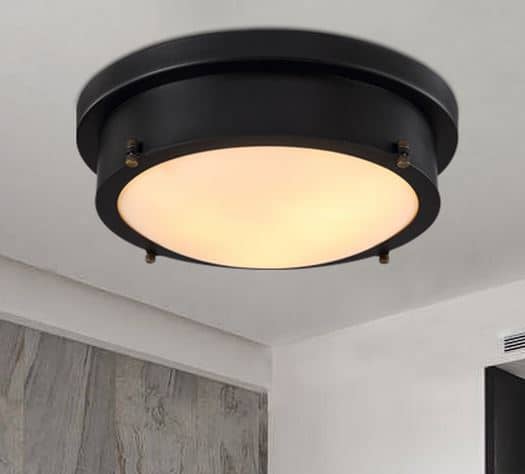
Shop this look: GERDA Signalling Ceiling Lamp
Consider the Fixture Size
We are firm believers of centerpieces. Although modern minimalism finds ways to pull off a good set-up without the conventional chandelier or hanging lamps, having a centerpiece is still a great idea, most especially for your living room. However, you should always remember that size matters. You shouldn’t oversize your lighting fixture, especially your statement light.
Diameter
Technically, fixtures should be proportional to the room. As a rule of thumb, take the dimensions of your room in feet and get its perimeter, then divide it by two. It’s basically adding up the length and width of the room. The half of the perimeter of your living room in feet is the maximum recommended diameter of your chandelier in inches.
Height
The height of your chandelier or pendant lamp will depend on the floor to ceiling height of your living room. The ratio is 2.5inches in fixture height should equivalent to 1 foot of the room’s height. So for a standard 9 foot room (2.7 meters), a 22.5inches hanging lamp is allowable. Sounds complicated? Basically, just multiply the floor to ceiling height of your room in foot with a factor of 2.5 and you’ll get your fixture height in inches.
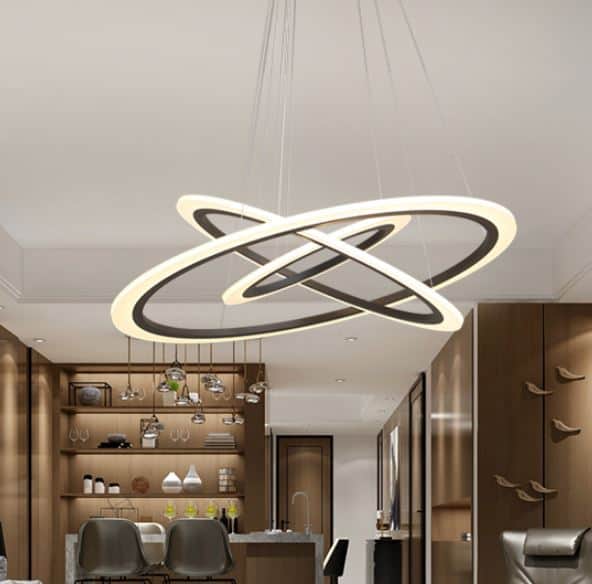
Shop this look: ALVAR Triple Halo Hanging Lights
These are our top 5 living room lighting strategies. Use this as a guide to make your living room a much better place to stay in for you and your family. Once you understand the point of all these, you can even think out of the box and be bold. Just remember to achieve a sense of balance design-wise and never forsake functionality of lighting. Once you’re done with lighting, you can go on to improve other parts of your living rooms like your furniture and decorations.
